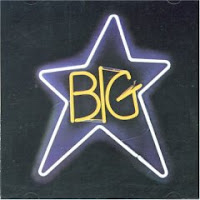
40 years ago: December, 1967
I first heard Songs of Leonard Cohen in the summer after I graduated high school, which is to say almost a decade after its release. Not many albums compare to it for the way it dominated my listening; it seemed to create an unshakeable mood. There was a quality to Cohen's debut album that seems not to be assimilable to the pop song, or even into the folk-song consciousness that Dylan and various other "poets" of the '60s song-writing binge had already made familiar to me.
Cohen was already a published poet and a published novelist by the time he turned to song-writing and recording. It always seemed to me that his musical career began because of record execs realizing, in the wake of Dylan et al., that there was money in serious young men composing surreal lyrics. Like Dylan, his songs were recorded by various vocalists looking to add profundity to their repertoire. And like Dylan, the versions he recorded of his own songs were less "musical," less polished, certainly less "commercial" than what others could do with them. This album, maybe more than any other I can think of, with the exception of Van Morrison's Astral Weeks, is for me a major marker of the '60s. So much of what passes for "the '60s" in the general conception -- whether acid rock, or Motown, or the British Invasion, or psychedelia, or Hendrix's guitar, or the best era for Top 40 of my lifetime, or whatever -- is set off to one side by this album. It consolidates my sense of the '60s because that seems the only time when an album like this could have been made. Granted, these days, with all the low-key, low-fi, indie alternates, it should be easy to find correlatives. But is it?
For one thing, Cohen was 33 when this album was released, and the maturity of it is striking in that regard. In fact, that may have to do with the quality of it that so arrested me. As if the first album Dylan released was Blood on the Tracks. There's already a long life behind these songs. These aren't songs that tell stories or that simply create feelings to go along with the tune. As performance, the songs are annunciations, statements, composed and delivered by a writer who understands, more than most songwriters, what it means to articulate a position. The task is to deliver, within a five or three minute song, a sense of experience as inner realization, to find images and phrases to enact what seem to be different facets of the same thing: the poet's mind beset by the poet's mind.
Generally the catalyst experience is some kind of relation to a woman, but not entirely or only. And maybe that's what registered so strongly with me at the time (in those uneasy late-teen years inaugurated by getting out of school finally): the attraction of the females that Cohen's songs sketch a relation to is a kind of attraction that is rarely met with in pop songs. It's the attraction of "the muse," that nebulous figure that one finds inside the mind, stitched or knit together, no doubt, from actual girls of one's experience, and of one's reading and of one's film-viewing, but blended with some ineffable quality that is ultimately the quality of the poet's mind, of his regard for how his words can shade that relation most artfully, most meaningfully.
A muse figure that would recur for Cohen is Joan of Arc, mostly because of the French component to the culture of Montreal where Cohen grew up and eventually studied at McGill. But choosing such a figure not only brings in medievalism -- which certainly had its faddishness in the '60s -- but also a Catholic mythology that Cohen -- whose first book of poems was called Let Us Compare Mythologies -- seems to evoke for the sake of two concepts that, perhaps, it takes Catholicism to appreciate: the flesh and the Word. And maybe that's the other thing that registered about Cohen, making him eclipse even Dylan for a time (for me): there is an aesthetic at work, or, more to the point, these are songs written by a man who knows what an aesthetic is, who has experienced it in a literary way, which makes him seem more worldly, more European, more cultivated than Blind Boy Grunt could ever aspire to.
Don't get me wrong: what made me believe in Dylan was the fact that he never became literary, try as many have (and never more so than these latter years) to accomplish that feat of making him so. Cohen is literary, without apology. Or maybe it's just that behind his songs a literary sensibility lurks, smirking at the simplistic stylings of these little ditties. Regardless, his claim to what he calls "stranger music" is unparalleled. It's a claim to the suffering the flesh undergoes because of the Word -- not just that our sin of desiring knowledge more than God's love makes us guilty even in our glory, but that knowledge of the Word means we can never be content with the flesh, no matter how we worship it. Almost every Cohen song meditates on some aspect of this mythology. So the mastery of Cohen is not only the oddity of "pop" songs set irrevocably in a fallen world, it's also the necessary sense that song is the only possible response to such a condition of existence. You must sing to the Lord via the Muse. It's really the best you can do.
And taking from his wallet an old schedule of trains
He says, "I told you when I came, I was a stranger."
--Leonard Cohen, "The Stranger Song" (1967)













